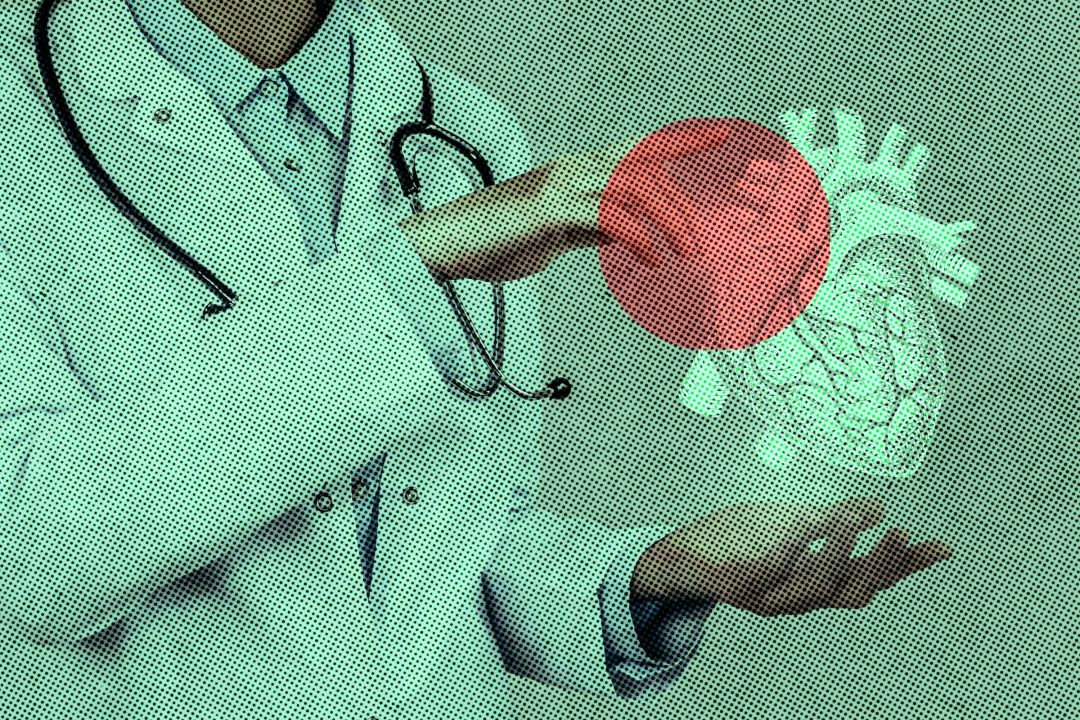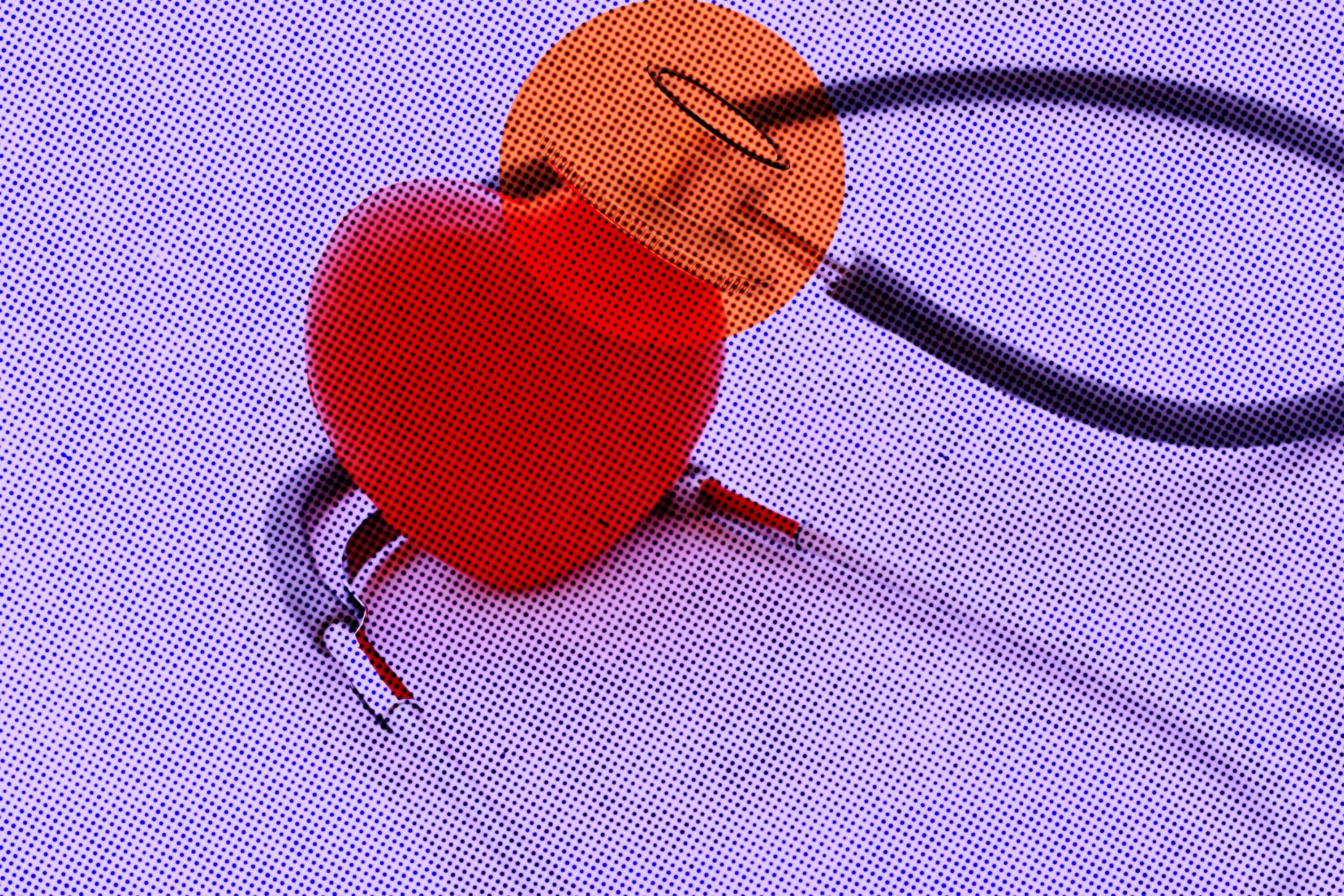Can New AI Tools Detect Heart Disease Early?

Image: Kari Perrin
Detecting heart disease early is one of the key steps in treating the condition. But until now, doctors have had difficulty differentiating cardiovascular conditions through ultrasounds alone.
In February 2022, scientists at the Smidt Heart Institute at Cedars-Sinai announced the creation of artificial intelligence that can not only detect heart disease early, but can tell the difference between conditions that look almost similar to the naked eye.
More than half of U.S. adults suffer with some form of heart disease, according to an American Heart Association report in 2019. There are several causes of heart disease, including obesity, smoking, poor diet, lack of exercise, hypertension and genetics. Symptoms like hypertension, or high blood pressure, are often "silent," meaning you do not experience ill effects—so heart disease can also be a potential silent killer.
So what would happen if doctors could detect heart disease and hard-to-diagnose heart conditions early on? That's exactly what the artificial intelligence device seeks to do. The algorithm focuses on two conditions that are hard to diagnose: hypertrophic cardiomyopathy and cardiac amyloidosis.
Hypertrophic cardiomyopathy is a disease in which the heart muscle is thickened, making it harder to pump blood. Cardiac amyloidosis is a condition where protein builds up in your heart. Both are difficult for cardiologists to identify, so patients can go for years without a correct diagnosis.
"The algorithm can pinpoint disease patterns that can't be seen by the naked eye, and then use these patterns to predict the right diagnosis," writes Dr. David Ouyang, the author of the Smidt Heart Institute study.
The algorithm is a two-step process that has been used on more than 34,000 cardiac ultrasound videos from Cedars-Sinai and Stanford Healthcare's echocardiography laboratories. When applied to the images, the algorithm identified specific features related to the thickness of the heart walls and size of heart chambers, to flag certain patients as suspicious for having these diseases.
Sometimes heart thickness and shrinkage can be passed off as a normal part of aging. This algorithm can distinguish what is normal and what isn't long before the patient experiences negative health outcomes of the disease.
Sarasota cardiologist Dr. Chippy Ajithan finds that patients, particularly women, will often have outstanding complications, such as diabetes and kidney disease, before they even know they have a heart condition or are in heart failure. This is why early diagnosis and prevention are so important. In a video for Sarasota Memorial Hospital in 2018, Ajithan emphasized that substernal chest pressure, pain and discomfort that can radiate into the arms, upper neck and back are potential symptoms of heart conditions that should not be overlooked.
"Men and women can also break into a sweat, or get lightheaded and dizzy due to exertion or emotional stress," Ajithan adds.
Ajithan also says that 90 percent of heart disease cases can be prevented by changing modifiable risk factors, such as smoking cessation, weight loss and treatment of diabetes and high blood pressure. This is especially important when dealing with hypertrophic cardiomyopathy and cardiac amyloidosis because they often do not have symptoms at the start. Thickening or build up of protein in the heart wall is not often felt in patients.
The Cedars-Sinai study also reports that the artificial intelligence is an important advancement for the health of minorities, as both conditions tend to affect older, Black men or patients with cancer.
"Many patients belong to underserved communities, making the study results an important tool in improving healthcare equity," Ouyang writes in the report.
Ouyang also writes that preventing worst possible outcomes—heart failure, hospitalizations and sudden death—is a reason why artificial intelligence tools like this algorithm are needed in hospital settings. However, further work is needed to understand it and compare it against other imaging modalities.
Since the report came out in February 2022, researchers plan to launch clinical trails for patients flagged by the algorithm for suspected cardiac amyloidosis. Patients enrolled in the trial will be seen by experts in the Smidt Heart Institute program. While hospitals around the country, including Sarasota Memorial Hospital, utilize artificial intelligence in other areas of study, this particular algorithm may take some time before it treats local patients.
"There are four pillars of health we can use to reduce our risk of heart disease, even if we are genetically predisposed," Ajithan says in the SMH video. "Nutrition, movement, mindfulness and love are all important factors to keep in mind. Lifestyle change such as eating well, exercising and managing stress is still crucial."
And until the Smidt Heart Institute technology is available everywhere, Sarasota Memorial Hospital's cardiac care program has the region's largest robotic surgery program, in which it treats a number of cardiac conditions.
"If you have a condition requiring surgery, minimally invasive surgery has been developed for faster recovery, less pain and minimal scarring," says Ajithan.
For more information on Sarasota Memorial Hospital's cardiology department, click here or call (941) 917-9000.



